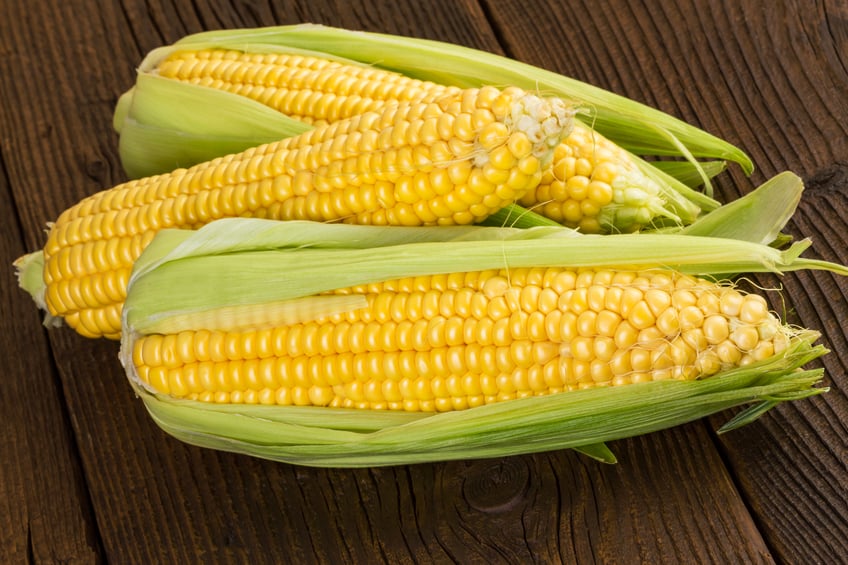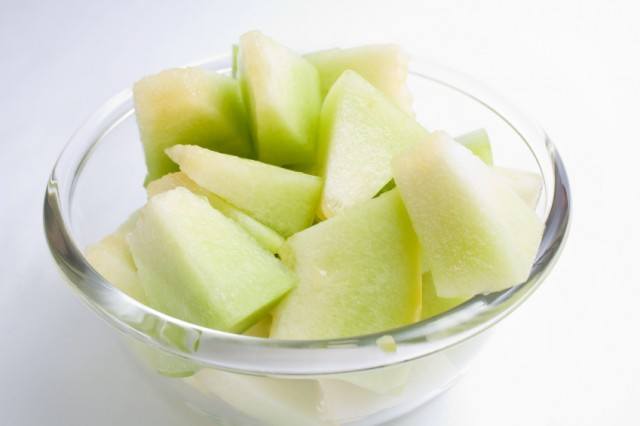You’ve been hearing the same recommendation for years: Eat more fruit and vegetables. This is solid advice, but a trip to the local supermarket or farmers market might lead to more questions beyond simply whether to bake those berries into a pie or enjoy them raw. (Hint: Pies are delicious, but raw fruit offers natural sweetness with no added sugar.)On one side, there’s the
On one side, there’s the organic produce: smaller, possibly misshapen, and more expensive. On the other side, there are bountiful baskets of non-organic produce that look pretty tempting — especially when they’re on sale. But will all the health benefits still register if you choose non-organic? Or are you subjecting yourself and your family to deadly invisible pesticides in an effort to save a buck?
The answer is it depends. The Environmental Working Group releases a list each year of fruits and veggies you should always buy organic. Those are known as “The Dirty Dozen,” thanks to their high likelihood of exposure to and absorption of pesticides. On the other end of the spectrum, the group recommends if you’re going to choose non-organic, you should look at “The Clean 15.” These fruits and vegetables might contain trace amounts of pesticides, but overall they’re not very harmful and worth buying non-organic.
So save your cash, and read on for the 15 fruits and vegetables you don’t really need to buy organic.
1. Sweet corn

It isn’t necessary to buy organic corn. | iStock.com
Good news: Your beloved corn on the cob is safe, thanks in part to that thick protective husk you spend so much time shucking. In fact, corn was the cleanest of the clean, with less than 1% of all tested samples showing any trace of pesticides, according to the Environmental Working Group.
Take heed, though, that most corn is grown with controversial GMO seeds. So buy organic if that’s something you’re trying to avoid.
2. Avocado

Non-organic avocados are just as good as organic. | iStock.com/MSPhotographic
Soft on the inside and tough on the outside, avocados are like the snail of the fruit world. That thick skin helps to protect them from pesticide exposure, and it makes them one of the least contaminated items on this list. The Environmental Working Group found less than 1% of all avocados contained pesticides. So your trendy avocado toast can safely be served up without paying organic prices.
3. Pineapple

Pineapple’s thick skin keeps the sweet fruit safe. | iStock.com/ansonmiao
4. Cabbage

Savoy cabbage’s thick outer leaves protect it. | iStock.com/Valentyn Volkov
Although it might not be the most popular vegetable on the list, the stoic cabbage gets a nod thanks to its thick outer leaves, which protect the inside from pesticide exposure. To decrease your risk of pesticide exposure even more, peel off the outermost layers before enjoying.
5. Onion

Onions’ outer layer and flavor keep them safe. | iStock.com/Jelenast
Don’t cry — onions are safe. The same tangy, bitter texture of a raw onion that keeps humans from consuming them raw (except when doused in salad dressing) is what keeps pests away. That negates the need for pesticides.
6. Sweet peas (frozen)

Green peas become safer in the freezing process. | iStock.com/SherSor
Frozen vegetables in general contain fewer pesticides than their raw counterparts, thanks to the blanching process they undergo prior to freezing. So go ahead and get the non-organic sweet peas.
7. Papaya

Papaya is a nutrition powerhouse. | iStock.com
Peeling away the thick outer skin of a papaya decreases your risk of pesticide contamination. And that’s a good thing because papayas are sweet and delicious. And they’re packed with antioxidants, vitamin A, and fiber.

Asparagus’ taste keeps pests away. | iStock.com
The bitter taste of raw asparagus makes it less attractive to pests, and therefore it’s less likely to need any kind of pesticide protection. Plus, asparagus contains several nutrients, such as folic acid, potassium, and fiber. And it has powerful antioxidants.
9. Mango

Mangoes have numerous health benefits. | iStock.com
This sweet, tropical fruit is chock full of antioxidants and has even been linked to lower cholesterol, clearer skin, and improved digestion. It also makes the list of clean fruits because of a thick shell, which might be a little complicated — but not impossible — to peel. It’s well worth the effort.
10. Eggplant

Eggplant’s skin is a natural pest deterrent. | iStock.com/Olha_Afanasieva
This noble purple-hued vegetable has a very unique and versatile taste, lending itself well to vegetarian dishes, such as eggplant Parmesan. Or it can be roasted or even eaten raw. Another nice thing about eggplant? Even when non-organically grown, it’s resistant to pesticides, thanks to a thick outer skin.
11. Honeydew melon

Honeydew’s thick rind protects it. | iStock.com
Like other melons, the honeydew is protected from pesky pesticides because of a thick outer rind. And like every other item on this list, it tested positive for no more than four different kinds of pesticides.
12. Kiwi

Kiwis’ skin keeps them safe. | iStock.com
Deceptively fuzzy on the outside, kiwis offer a sweet treat that’s always a welcome addition to your fruit salad. Best of all, kiwis contain little to no pesticides, again thanks to a tough outer skin.
13. Cantaloupe

Like honeydew, the cantaloupe’s rind protects it. | iStock.com
You can enjoy non-organic cantaloupes without fear of ingesting pesticides. The thick rind of this popular fruit acts as a suit of armor, protecting the inside from possible contamination.
14. Cauliflower

Cauliflower is a superfood, even when it’s not organic. | iStock.com
This cruciferous vegetable is classified as a superfood and has been linked to positive health benefits, including fighting certain kinds of cancer and boosting heart health. So being relatively free of pesticides is only the start of its health benefits.
15. Grapefruit

Your face loves this fruit just as much as your taste buds do. | iStock.com/Angelika-Angelika
Following the trend of other thick-skinned fruits, grapefruits get their protection from a thick peel that protects the fruit hidden within. This low-calorie, tangy treat can even help lower your cholesterol, curb your appetite, and clear your skin.
